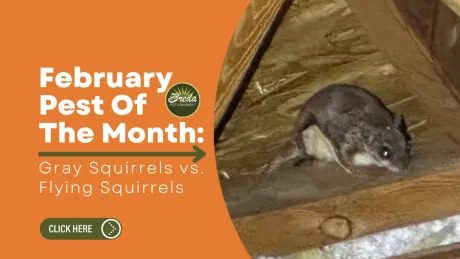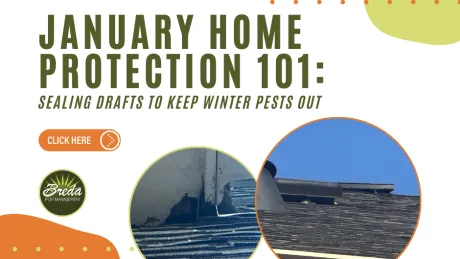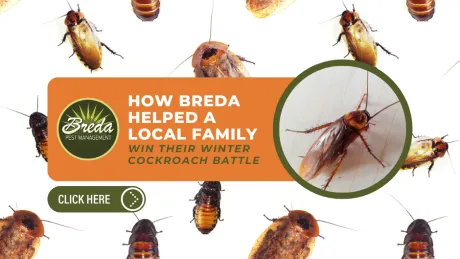Termites are a house's worst enemy. The damage they do can utterly cripple a home, but their subterranean tunneling means that most homeowners won't know something's wrong until severe damage has already been done. In most cases, while there are steps you can take, the only way to fully eliminate the problem is to bring a certified professional on board.
As a homeowner, you can't afford to put your home at risk, but you can't afford to go with an unqualified exterminator that might not eliminate the problem completely. Here are some great steps to take when searching for a qualified pest control specialist that can put a stop to your termite problem for good:
Know the Problem
Regardless of the type of pest, it's always a good practice to find out as much as possible about the problem before signing any contracts. Even if you can't determine the pest itself, the better you can describe the damage you've found and the warning signs you've noticed, the better a professional will be able to adequately treat the problem.
In addition to what damage has been done, also specify which areas have been affected, as this information can also help a professional determine the root of the problem. While the full extent of damage will probably remain beneath the surface and out of sight, it will nevertheless give your exterminator a good place to start.
Once you've identified as many problem areas as possible and are reasonably certain that termites are the cause, it's time to find the best pest control service for your unique situation.
Ask Around
Before you dive in and start researching exterminators near you, don't be afraid to ask around for help. Friends and neighbors, especially those that have successfully dealt with insect infestations in the past, could be able to point you in the right direction.
Likewise, when you're narrowing down your selection, ask each prospective company for customer references. In addition to helping you choose one exterminator over another, hearing about the services received from the mouths of the customers themselves can give you a better idea of exactly what to expect from your home's treatment.
Check the Credentials
You know your problem and you know what your community is saying, but you still want to find out as much as possible about each prospect prior to signing anything. Once you've brought your pest control search down to the final 2-3 best options, it's time to start checking their credentials to see which company will make the best fit.
For the best results, try to treat it like a job interview. Each pest control company can bring value to your home, but you only have one opening for the best exterminator available. Here are some great questions to ask to get you started:
- How long has the company been in business?
- What types of pests can you treat for?
- What makes your company more qualified than a competitor?
- What certifications and licenses has the company earned?
- How is your company insured? Do you have general liability insurance as well as workers' compensation?
- What methods do your employees use to exterminate an invasive insect species?
- How will your team repair any termite damage they find?
- Once the infestation is eliminated, how will you keep it from coming back?
If you're not satisfied with the answers you get, move on to the next prospect. And if you want to double-check the status and qualifications of individual companies, head over to the Georgia Department of Agriculture website for more information.
Read the Fine Print
After hearing about their company in their own words, you may be sold on a particular company, but don't forget to read the fine print. No matter how great the exterminator, he or she is only liable for what's lined out in the contract, so make sure what's on the page matches your expectation before you sign your name.
Likewise, read any available warranties to ensure you're protected in the event something goes wrong. Termite control is generally guaranteed for 1-5 years, but you won't know for sure unless you look over the documentation yourself.
Environmentally-conscious homeowners might also ask for copies of the labels of all the pesticides being used and the rates at which they'll be applied to ensure their termite treatment isn't inadvertently damaging the surrounding ecosystem.
Watch for Warning Signs
We should also take a look at some of the things to avoid. While it's essential to know what makes a great pest control company, it's just as important to know some of the red flags that can indicate that a company isn't reputable so that you can save yourself from big headaches down the road.
Here are some warning signs to be on the lookout for:
- The company tries to sell you "special deal" treatments that are cheaper but require you to sign the contract immediately, or that cut corners by using leftover material from a previous job
- The company doesn't have a listed address or telephone number
- The company sells services door-to-door, arriving unexpectedly and using "insects they've found around your neighborhood" as proof of an infestation
- The company claims to have a "secret formula" that's more effective at killing pests than the competition (all pesticides used in the state of Georgia must be registered by the EPA and Georgia Department of Agriculture)
- The company claims to be endorsed by the EPA, the Georgia Department of Agriculture, or any other government agency
Don't Rush
Finally, don't rush your decision. Even if severe termite damage is present, taking the time you need to ensure you get the right exterminator is essential. After all, what good is getting the job done quick if it isn't done right and the termites come back? If the infestation isn't completely treated, you'll only be solving some of the symptoms of the problem, not the problem itself?
This also applies to the cost. It may be appealing to save money by going for the cheapest company you can find, but as the saying goes, you get what you pay for. Buy on the value of the service, not the price.
Don't settle for the closest exterminator, or the cheapest, or the one that cuts corners to get the job done the fastest. If your perfect exterminator is the closest, the cheapest, or the fastest-working, that's fantastic, but never exchange a job done quick with a job done right.
For more information about termites, the damage they cause, and how you can identify a termite infestation before it puts your home at risk, download our free informative guide, The Lifecycle of a Termite Colony, and protect your home today!



